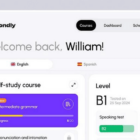As we settle into 2017, you may have noticed your well intended but ambitious New Year’s resolutions falling by the wayside as you get back into the swing of things.
The promise to make ‘better financial decisions’ is the third most common New Year’s resolution out there. But given that 92 per cent of us fail to stick to any of the resolutions we make, something clearly isn’t working.
For the 4.6 million freelancers and self-employed people in the UK, the need to manage your money well is vital. Without the safety of a guaranteed monthly pay packet, holiday or sick pay, freelancers who are too frivolous with their money are flirting with financial disaster. With this in mind, here’s how you can get to grips with your freelance money in 2017.
01. Keep personal and business money separate
If you operate as a sole trader, the money you earn from freelancing will land directly into your personal bank account. While this is handy because it means you won’t need to pay yourself through your own limited company out of your business account, it also has its pitfalls.
Without a clear separation between your personal and business money, it’s easy to dip into the amount you should be tucking away for a rainy day, or even your annual tax returns. One trick for keeping a better eye on this is to open a new current account for all your business money, or a savings account that all the money you earn from freelancing is paid into.
This helps you keep track on the amount you’re earning and paying yourself, while making it easier to keep a sum out of reach for tax. Try it out.
02. Tackle late payment head on
More than half of freelancers and small businesses are regularly paid late. Needless to say, late payment is a killer for cashflow. Sadly, it’s usually a problem that to a certain extent is out of your control. That said, there are a couple of tricks to help you speed along the process…
Faster invoicing typically leads to faster payment. Invoice immediately, the moment you’ve finished a project. ‘Recency bias’ means your client will give more importance to recent events, compared to older ones. It’s worth a go.
Try slashing your payment terms from 30 days down to 14 days, and give your payment a little more urgency. The faster you’re paid – the healthier your cashflow will become.
03. Get planning
Obvious? Of course. But a worrying 47 per cent of UK small businesses work without a business plan, and financial planning makes up a large chunk of your business plan. Sketch out a simple, flexible financial plan that you can stick to. Keep it realistic, include your income, outgoings and expenses and bear in mind that as a freelancer, your earnings could well rise and fall throughout the year.

04. Revaluate and reconsider
Look at how and where you spent your money in 2016. These days, online banking offers a breakdown of your spending. And as unpleasant viewing as it might be, discovering those frequent and unnecessary costs will help you curb them. Shop around on price comparison sites to find deals on business products and services. You’re likely to find a number of good deals early on in the year. So the time to do it is now.
05. Embrace technology
From designers to writers and coders, many of us freelancers struggle with the financial side of business. But like everything these days, technology provides a solution. Stop fretting and let technology do more of the hard work. From specialist freelancer accountants through to nifty apps to make your life easier, it’s time to embrace the new wave of financial technology – if you haven’t already.
Related articles:




